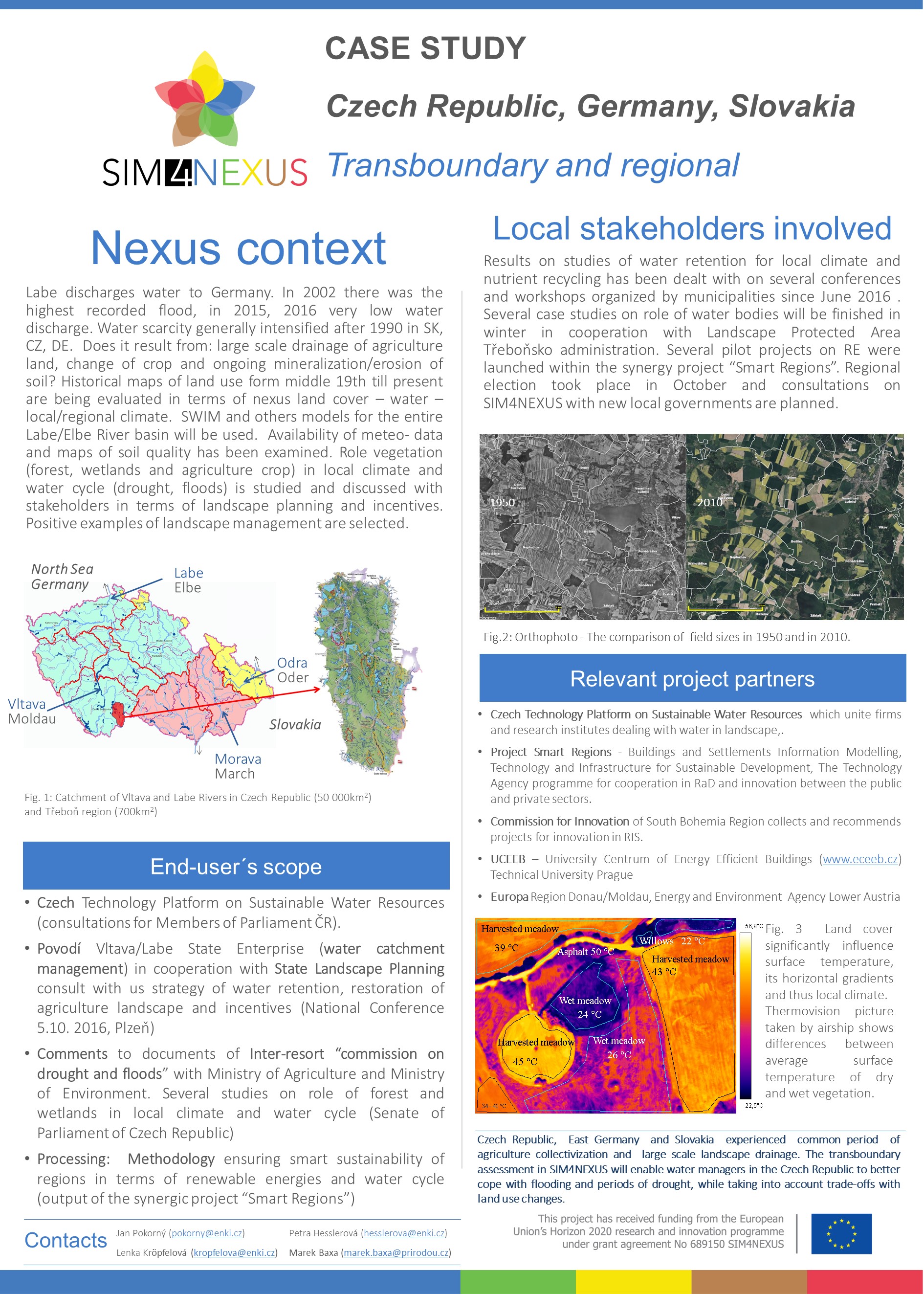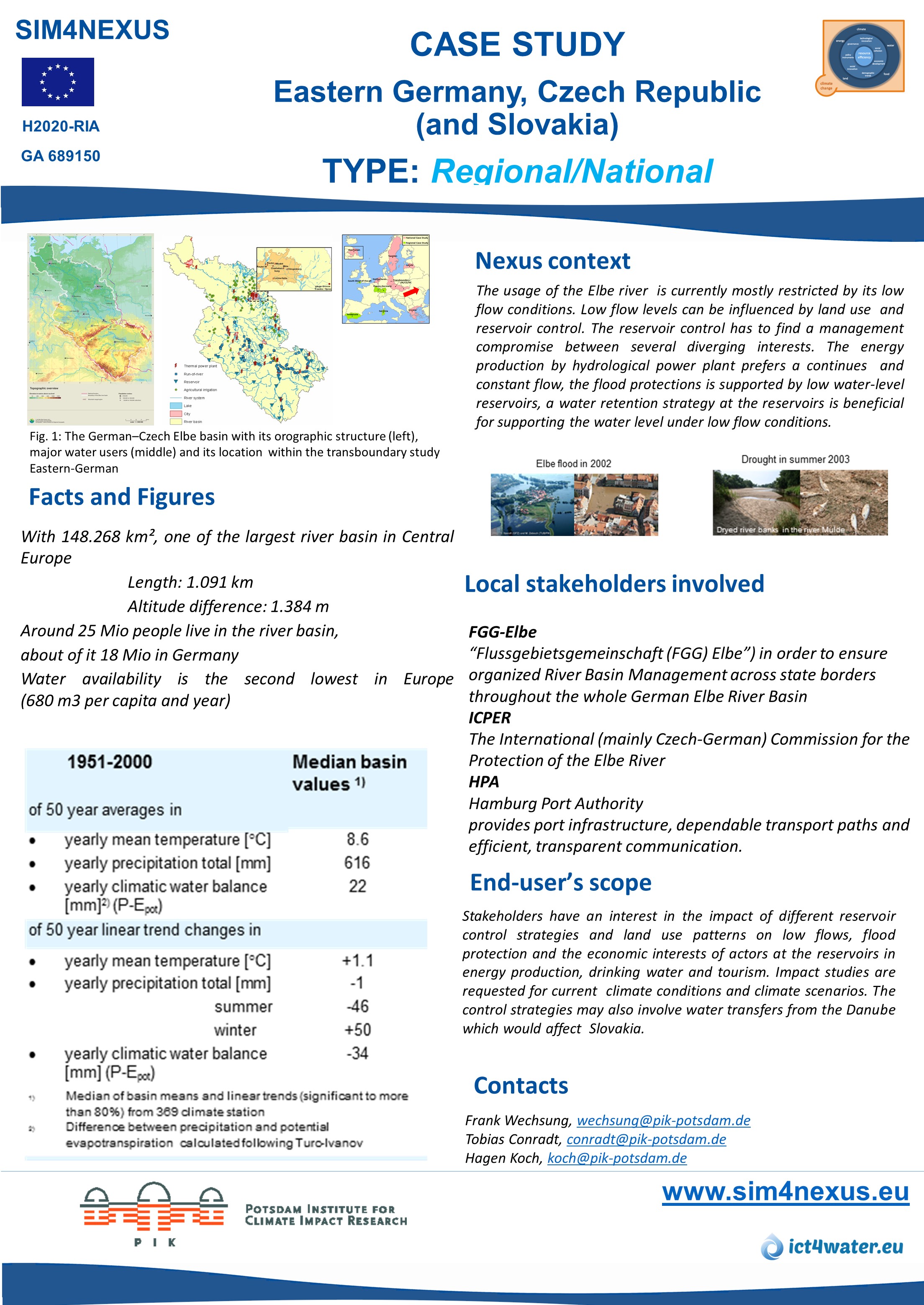Climate-resilient landscapes in Eastern Europe (Germany, Czech Republic, Slovakia)
Lead Partners: Potsdam Institute for Climate Change, ENKI and People&Water
Rainwater retention is a driving force of climate-resilient landscapes.
Landscape restoration based on retention of water through the involvement of new forests, seepage grass strips, wetlands and ponds are recommended, accompanied by improving soil quality. By retaining rainwater in damaged ecosystems, the renewal of vegetation begins, carbon sequestration, soil and groundwater reserves improve, springs are renewed, water vapour is increased and solar energy is transformed into latent heat that is transferred to higher, cooler layers of the atmosphere. There, at the dew point, this latent energy is transformed into sensible heat. The generated rainfall returns to the ground and feeds the ecosystems, stimulates vegetation growth, carbon sequestration and thermoregulation in the landscape. Clouds reduce the entry of solar radiation. This functional model can be quantified and implemented at the individual, local, regional and global levels.
Click here for more information
For more information please contact:
Jan POKORNÝ
ENKI, o.p.s. T?ebo?, Czech Republic
pokorny@enki.cz
Michal KRAV?ÍK
People and Water, Košice, Slovakia
Tobias CONRADT
Potsdam Institute for Climate Impact
Research (PIK), Germany


.jpg)